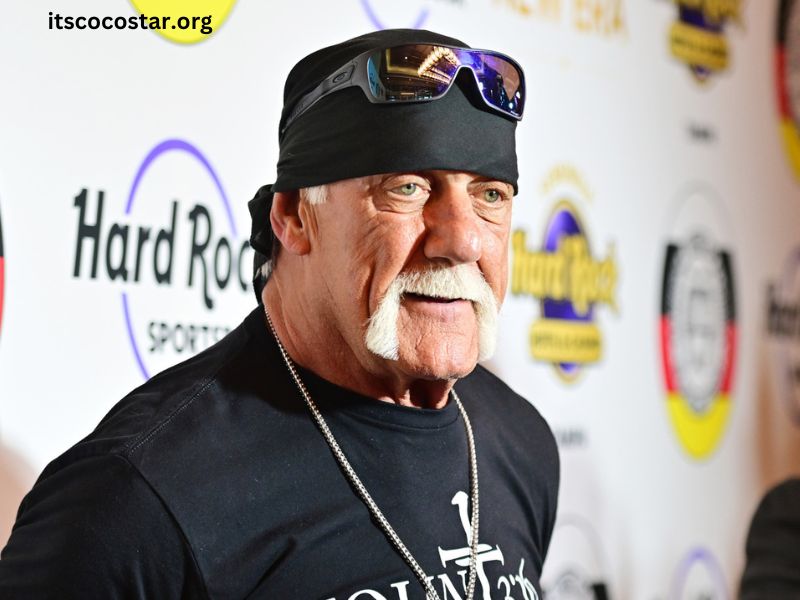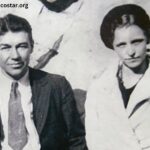When it comes to professional wrestling, few names are as iconic as Hulk Hogan. Known for his larger-than-life persona, charismatic promos, and in-ring presence, Hogan played a pivotal role in shaping the wrestling industry as we know it today. His involvement in World Championship Wrestling (WCW) during the 1990s was a significant chapter in his career and in the wrestling industry. However, when a documentary about WCW was released, fans and industry insiders alike were surprised by the conspicuous absence of Hulk Hogan. This article explores the reasons behind Hulk Hogan’s absence from the WCW documentary, the implications of this omission, and what it means for the legacy of WCW and professional wrestling as a whole.
Hulk Hogan’s Role in WCW
Before diving into the reasons for his absence, it’s essential to understand just how integral Hulk Hogan was to WCW’s success in the 1990s. After rising to global fame in the WWF (now WWE), Hogan signed with WCW in 1994, a move that was considered groundbreaking at the time. His arrival in WCW was seen as a coup for the promotion, which was looking to compete directly with WWF.
Hogan’s presence in WCW culminated in one of the most famous storylines in wrestling history: the formation of the New World Order (nWo) in 1996. As the leader of nWo, Hogan transformed from the beloved “Real American” hero to a villainous character, “Hollywood” Hogan. This heel turn shocked the wrestling world and led to a massive surge in WCW’s popularity. The Monday Night Wars between WCW’s “Monday Nitro” and WWF’s “Monday Night Raw” became a cultural phenomenon, with WCW often winning in the ratings, thanks in large part to Hogan and the nWo storyline.
The WCW Documentary: A Closer Look
In recent years, professional wrestling documentaries have become increasingly popular, offering fans and newcomers alike an in-depth look at the industry’s history, behind-the-scenes stories, and the personalities that have shaped it. The WCW documentary, which chronicles the rise and fall of the promotion, was highly anticipated by wrestling enthusiasts. It promised to shed light on the key moments, decisions, and figures that played a role in WCW’s storied history.
However, upon the documentary’s release, viewers quickly noticed the absence of one of WCW’s biggest stars: Hulk Hogan. For many, this omission was puzzling. How could a documentary about WCW, a promotion that Hogan was so crucial to, not include him?
Potential Reasons for Hogan’s Absence
There are several theories and speculations as to why Hulk Hogan was not included in the WCW documentary. While no official explanation has been provided by the documentary’s creators, a combination of factors likely contributed to this decision.
1. Controversial Legacy
One of the most significant factors that might have led to Hogan’s exclusion is his controversial legacy. In 2015, Hogan was embroiled in a scandal involving the release of a private tape in which he made racist remarks. The fallout from this scandal was severe, leading to Hogan being fired by WWE, and his name and image were scrubbed from the company’s history for a time. While Hogan has since been reinstated into the WWE Hall of Fame and has made several appearances, the stain on his legacy remains.
Given the sensitivity of the topic, the creators of the WCW documentary may have chosen to avoid including Hogan to prevent any potential backlash or controversy. Including Hogan would have required addressing the scandal, which might have shifted the focus of the documentary away from WCW’s history and onto Hogan’s personal issues.
2. Creative Differences
Hulk Hogan is known for being a shrewd businessman who is very protective of his brand and image. It’s possible that Hogan and the documentary’s producers could not agree on how he would be portrayed. Hogan has a history of wanting to maintain control over his narrative, and if he felt that the documentary did not present him in a favorable light, he might have chosen not to participate.
Creative differences between Hogan and the documentary team could have also stemmed from the portrayal of certain events, such as the end of WCW and the role Hogan played in its downfall. The narrative surrounding Hogan’s influence in WCW has always been complex, with some crediting him for the promotion’s success, while others blame him for its demise. If Hogan believed the documentary leaned too heavily on the latter perspective, he may have opted out.
3. Legal and Contractual Issues
Legal and contractual issues can often play a role in who appears in documentaries, especially in the world of professional wrestling, where intellectual property rights are fiercely guarded. Hogan’s likeness and past WCW footage could be owned by WWE, and there might have been restrictions on how it could be used. If the documentary’s producers were unable to secure the necessary rights to include Hogan, this could explain his absence.
Additionally, there could have been issues related to compensation or the terms of Hogan’s participation. If the financial terms were not satisfactory, or if Hogan had other contractual obligations that conflicted with the documentary, this might have prevented his involvement.
4. WWE’s Influence
The WCW documentary, like many wrestling documentaries, was likely produced with the cooperation or input of WWE, which now owns WCW’s video library and intellectual property. WWE’s relationship with Hulk Hogan has been complicated over the years, and there could have been internal decisions at WWE to limit Hogan’s involvement in the documentary.
It’s also possible that WWE preferred to focus on other aspects of WCW’s history and chose to minimize Hogan’s role to avoid overshadowing other key figures and moments. By omitting Hogan, the documentary might have aimed to present a more balanced view of WCW’s legacy, rather than centering it around one of wrestling’s most polarizing figures.
The Impact of Hogan’s Absence on the Documentary
The absence of Hulk Hogan from the WCW documentary undoubtedly leaves a gap in the story being told. Hogan’s role in WCW was so significant that any comprehensive look at the promotion’s history would feel incomplete without him. His absence might lead some viewers to question the documentary’s credibility or thoroughness.
However, the decision to exclude Hogan could also be seen as a deliberate attempt to focus on the broader narrative of WCW’s rise and fall, rather than getting bogged down in the controversies surrounding one individual. The documentary may have sought to highlight other important figures in WCW, such as Eric Bischoff, Ric Flair, Sting, and the nWo as a whole, rather than giving undue attention to Hogan.
What Hogan’s Absence Means for His Legacy
Hulk Hogan’s absence from the WCW documentary has implications for how his legacy will be remembered in the context of professional wrestling history. While Hogan will always be a central figure in the history of wrestling, his exclusion from this documentary might contribute to a gradual re-evaluation of his role in WCW.
For younger fans or those less familiar with wrestling history, the documentary’s omission of Hogan could lead to a diminished understanding of his impact on WCW and the industry as a whole. On the other hand, for those who lived through the Monday Night Wars, Hogan’s absence might serve as a reminder of the complex and sometimes problematic nature of his legacy.
Conclusion
Hulk Hogan’s absence from the WCW documentary is a decision that has sparked debate and speculation among wrestling fans and industry insiders. Whether it was due to his controversial past, creative differences, legal issues, or WWE’s influence, the reasons behind this omission are likely multifaceted. While the documentary may have chosen to focus on other aspects of WCW’s history, Hogan’s role in the promotion cannot be understated.
In the end, Hogan’s legacy in WCW remains intact, even if his presence was not felt in the documentary. His impact on the wrestling industry is undeniable, and his contributions to WCW’s success during the 1990s will continue to be a topic of discussion and analysis for years to come. Whether or not Hogan is included in future retrospectives on WCW, his name will always be synonymous with one of the most exciting and transformative eras in professional wrestling history.






